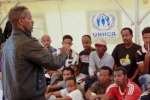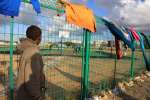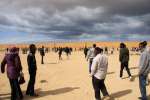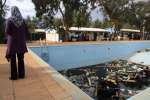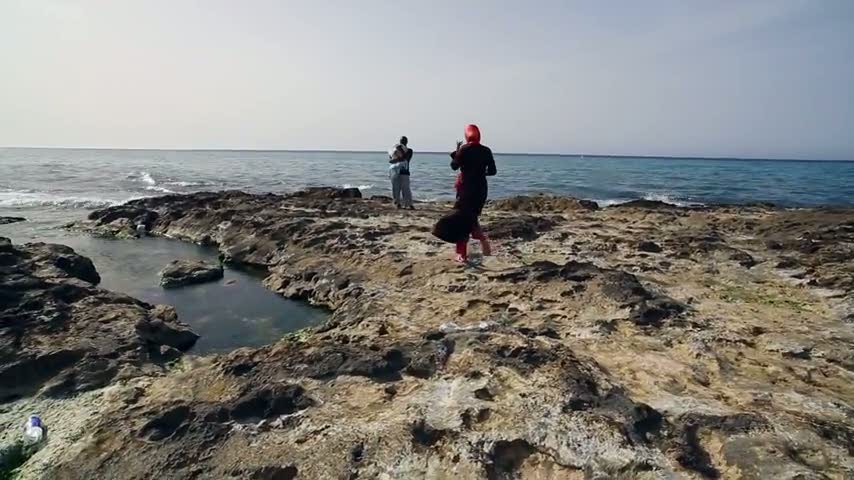- Text size
 |
|  |
|  |
| 
- Français
UNHCR distributes Ramadan meals to 55,000 Libyan refugees in Tunisia
News Stories, 3 August 2011
TATAOUINE, Tunisia, August 3 (UNHCR) – The UN refugee agency and several partner organizations have begun distributing evening meal foodstuff for more than 55,000 Libyan refugees during the Islamic fasting month of Ramadan.
Fifteen items of food, including rice, pasta, couscous, oil, tomato paste, tuna, sugar and dates, are being handed out in five provinces in southern Tunisia, where tens of thousands of Libyans are staying in camps or living with host families after fleeing the fighting in Libya this year.
The food will be eaten during iftar, or the evening meal. Over Ramadan, which started on Monday, Muslims are forbidden from eating or drinking during daylight hours. This teaches them about patience, spirituality and humility among other things.
Some 400 staff from UNHCR and other local and international organizations have helped pack, transport and distribute the food at more than 34 distribution points across the south, including here in Tataouine.
During Ramadan, some 10,000 families (55,000 people) will each receive a total of 120 kilogrammes of food items. The food will be distributed at regular intervals in the provinces of Tataouine, Gabes, Kebili, Sfax and Medenine.
Most of the Libyans have few resources and were happy to receive the food. "This donation will be a great help in cutting down family expenses during Ramadan," said 72-year-old Ali as he queued for his food package in UNHCR's Al Khayr distribution centre in Tataouine.
Ali, who fled to Tunisia in April with a large group of relatives, said Ramadan was very important to him and his family. "Ramadan is an occasion for family reunions," he said, while adding sadly: "Although the Tunisians are being very generous, we are finding it difficult to feel at home because our community network has been disrupted."
Nasir Abel Fernandes, UNHCR's senior emergency coordinator in southern Tunisia, said the logistics of the operation had gone very smoothly thanks to successful cooperation between all those involved, including the government.
Other organizations taking part in the Ramadan operation are the World Food Programme, the Tunisian Red Crescent, the United Arab Emirates Red Crescent, Islamic Relief, Al Tawoon, Secours Islamique France, Secours Populaire Francais, Wafa Relief and the Libyan Relief Committee.
By Rocco Nuri in Tataouine, Tunisia






